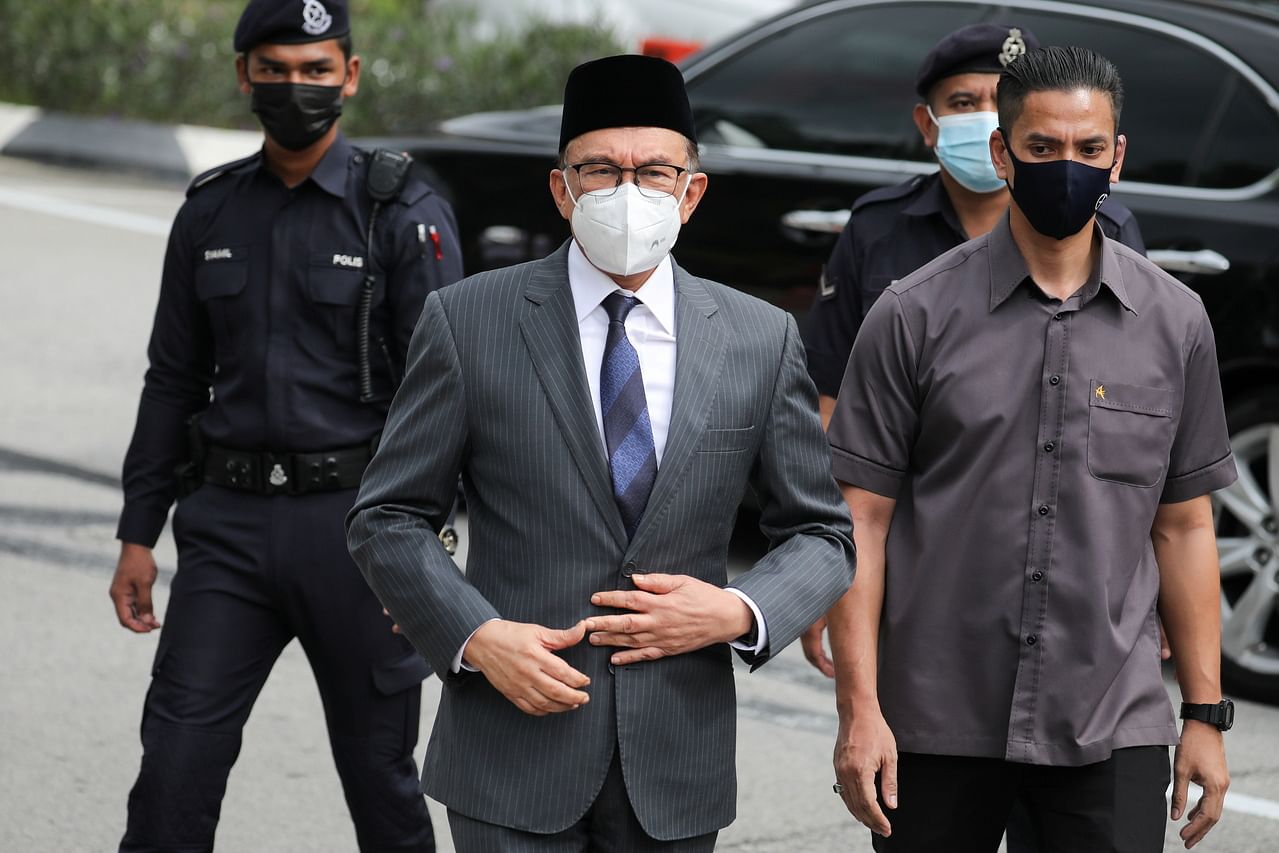Vital for Malaysia's new PM to act quickly: Pollster at ST Connect webinar
SINGAPORE – The political situation facing Malaysia’s new Prime Minister Ismail Sabri Yaakob is only a hair better than that of his ousted predecessor, and it is vital for him to quickly deliver results as public patience with the government wanes.
This was top Malaysian pollster Ibrahim Suffian’s take at the What’s Next For Malaysia? instalment of The Straits Times Connect webinar series on Wednesday (Sept 1).
The newspaper’s Malaysia bureau chief Shannon Teoh was also on the panel that was hosted by Foreign Editor Bhagyashree Garekar.
The panel sought to dissect the immediate challenges facing Datuk Seri Ismail and potential developments on the horizon, after Malaysia’s installation last week of its third premier in three years amid a devastating pandemic that has yet to show any signs of abating.
“Ismail Sabri needs to get his act together very quickly,” said Mr Ibrahim, founder and executive director of the Merdeka Centre for Opinion Research in Kuala Lumpur.
“The new prime minister’s position is barely better off than that of (former premier) Muhyiddin Yassin… He has only a handful of people that he can rely on to deliver him a majority in the House. And he has a limited timeframe – perhaps a couple of months at the most – to change the narrative, stabilise the political environment (and to) begin delivering the goods to the Malaysian public.”
He added: “Public patience is running thin. So (Mr Ismail has) a big challenge ahead.”
The difficulty of the tasks facing Mr Ismail is compounded by the fact that he is expected to bring about real change politically, economically as well as in Covid-19 containment, while tapping essentially the same team that his predecessor used without producing satisfactory results.
The new premier picked a near-identical Cabinet line-up to that of Tan Sri Muhyiddin, retaining most senior lawmakers from the previous Perikatan Nasional administration to keep his allies happy. He has only 114 MPs backing him, giving him a slim majority of the 220 seats in the federal legislature, and he gave more than half of his backers government positions.
But Mr Ismail has some advantages that his predecessor did not. While opinion polls in July before Mr Muhyiddin’s ouster showed that nearly two-thirds of Malaysians thought the country was headed in the wrong direction, Mr Ibrahim expects an improvement in public sentiment with the new premier.
More Malaysians – in particular bumiputera voters – are likely to see Mr Ismail as a leader suited to help turn things around, “in part because perhaps Umno (of which the new premier is a vice-president) is not going to strongly agitate against the new leadership”.
“People expect the stability that will come, even if thin and momentary, might give the government a chance to do some of the things that it had sought to do but wasn’t able to,” Mr Ibrahim said.
Moreover, the appointment of Mr Khairy Jamaluddin as Health Minister was “a step in the right direction, putting a young and dynamic person in charge of a critical part of the national recovery agenda”. Mr Khairy is in charge of the country’s Covid-19 vaccination roll-out, which has been applauded by the public.
Mr Teoh, ST’s Malaysia bureau chief, addressed the question of why opposition leader Anwar Ibrahim – who heads the biggest coalition in Parliament, Pakatan Harapan (PH) – has until now failed to put together a majority of MPs to form a government.
Essentially, Mr Teoh said, it boiled down to Umno’s continuing outsized influence over the Malaysian political sphere, and the party’s claims that Datuk Seri Anwar’s PH alliance was undermining Malay interests.
“Umno remains influential because it seems to speak on behalf of so many Malay families that are in the majority electorate in Malaysia,” he said.
“When it claimed that PH was trying to tear down all the privileges and special rights that Malays and Muslims enjoyed, people listened… So if you were an Umno MP right now, you wouldn’t prop up an (anti-Malay) Anwar government because it would hurt you with your electorate… It would be suicide with your own constituents.”
Both Mr Ibrahim and Mr Teoh agreed that Mr Ismail’s Barisan Nasional coalition government remains fragile, and that a general election might be the only way to resolve the political impasse.
Put to a guess on when that might be, Mr Ibrahim said: “If the political situation continues to be very challenging, we might see elections take place perhaps at the end of the second quarter next year.
“But if the situation has become more stable, then the new prime minister would probably want to take time to improve on his delivery and strengthen his base, so the election might happen only in early 2023.”
Malaysia’s Finance Minister Tengku Zafrul Aziz speaks about his plan to revive the country’s flagging economy. Catch him on The Straits Times Connect webinar series on Sept 2, 9pm on YouTube.
Join ST’s Telegram channel here and get the latest breaking news delivered to you.
Source: Read Full Article



